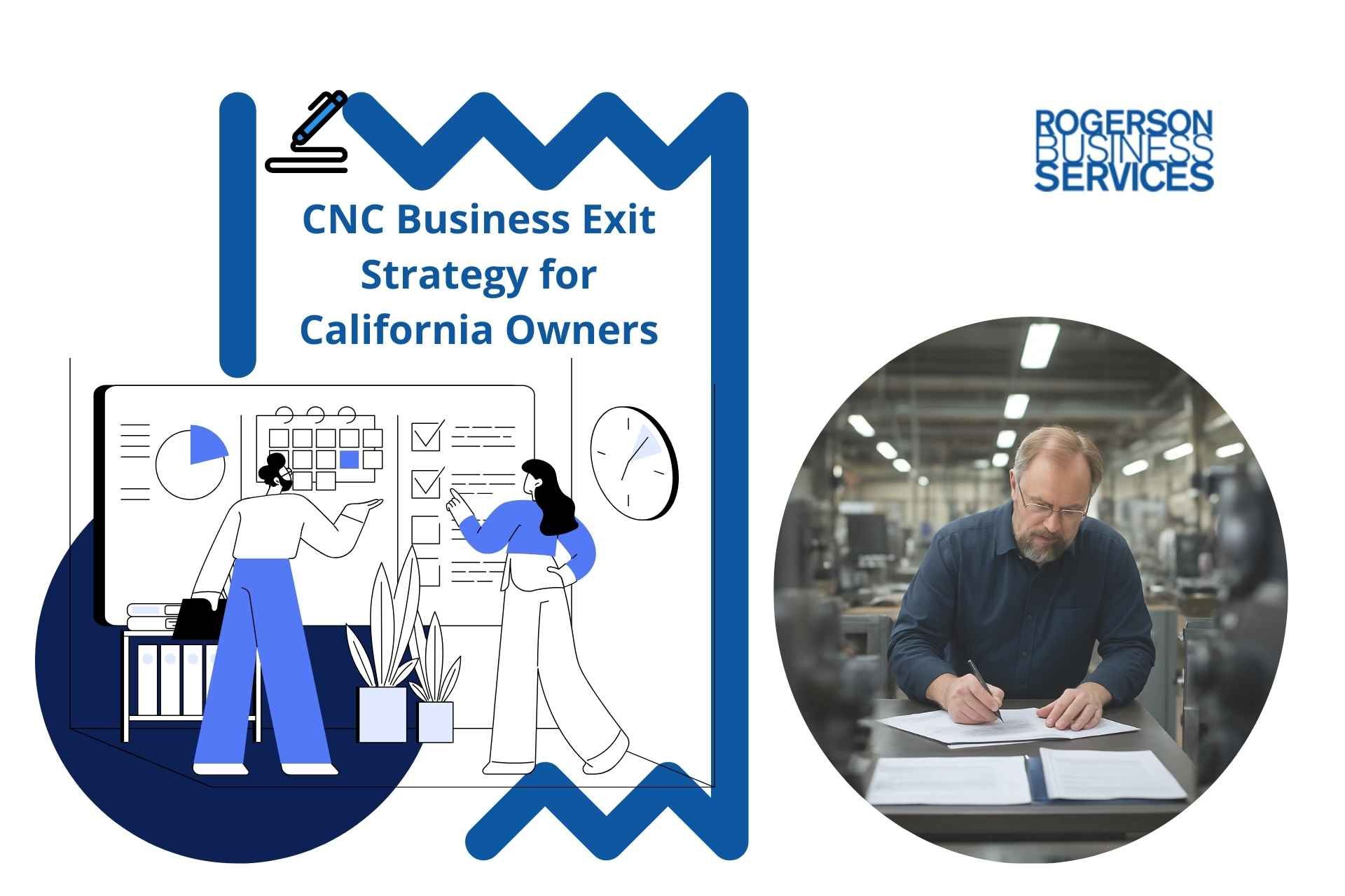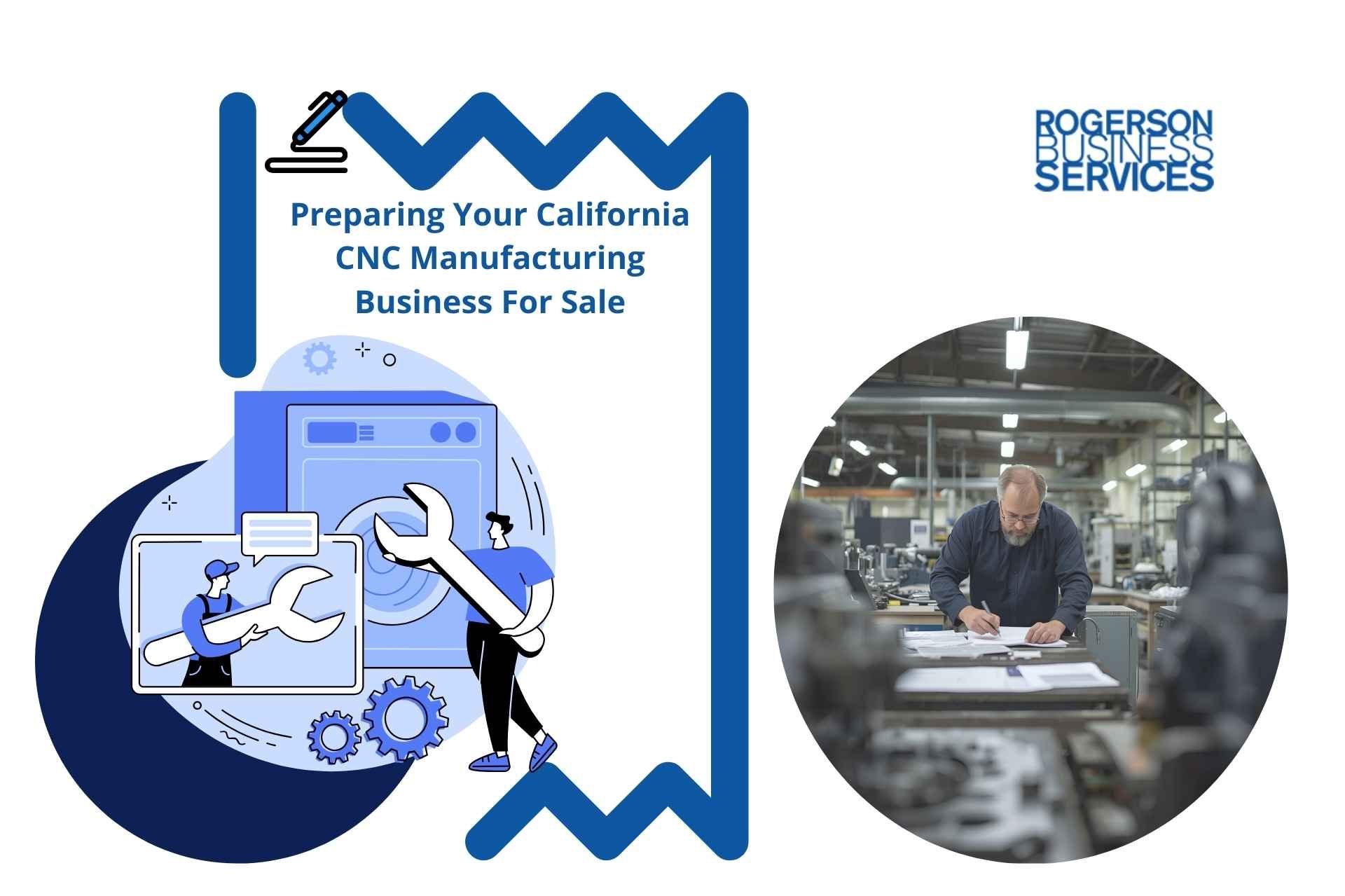What Does an M&A Advisor Do?
What is an M&A Advisor?
M&A Advisors are specialists and work very closely with business owners and/or the board of directors and often work with CPAs or accountants of the business to ensure the valuing and selling of the business is done to the highest standard.

Are you ready to sell your business?
Planning a methodical business exit strategy is crucial, and a Merger and Acquisition (M&A) Advisory firm assists business owners through the complex process of valuing, buying, selling, or company restructuring.
If you’re considering putting up your business for sale, you’ll want to contact a
certified M&A Advisory firm. Here’s what you need to know.
What is the Role of M&A Advisors in Selling a Company?
So, what is an M&A Advisor? M&A firms assist with valuing the business and then taking the business to market to find qualified and motivated buyers. That may seem fairly simple, but an accurate business value is important for the business to have a chance of selling.
What’s even more important is the M&A Advisor, like RBS Advisors, assisting with the many steps to prepare the business for potential buyers so their interest is quickly gained to step into the complicated accounting, legal, marketing and many other nuanced processes.
An M&A firm typically represents both the seller and the buyer through the business sale transaction, working as the middleman to ensure there is clear communication between both parties plus all the many other parties involved in a transaction.
For example, it is normal for the seller and the buyer to each have their own CPA, an attorney advocating for each party, a landlord and their needs, plus if you are selling a California lower mid-market business, the M&A Advisor will assist with licensing, connecting the buyer to lenders if needed as well as escrow companies that handle the detailed Federal and State government releases that are mandatory before a privately held business can change hands.
In addition to the above, an M&A Advisor can also offer
other services, such as:
- Providing advice and guidance on the storing and/or selling of goods
- Estimating an accurate value for the business
- Showing the business to potential buyers
- Assisting with all the contacts and negotiations for the sale of the business so the owners can stay focused on what they do best, which is running the business on a day-to-day basis.
- Ensuring the exit strategy framework is secure and stays on track.
- Ensuring the sale of the business is kept confidential, so employees and competitors do not find out the business is for sale.
- Ultimately making sure the sale transaction goes through smoothly to the satisfaction of all the parties in the transaction.
Steps that M&A Advisors Will Manage
The M&A strategy has many steps. Often, locating the right buyer with the financial ability, industry experience, and motivation to do an acquisition now as opposed to later can be the hardest part and can take anywhere from six months to two years to complete.
Once the right buyer is found and depending on the many variables, it can take from a minimum of two to 6 months to close the sale.
A critical skill and expertise the M&A Advisor will bring is to create a
due diligence checklist for selling the business. This checklist will outline all the necessary steps before, during, and after the business sale transaction and while a lot of the steps are standard, each transaction has its own uniqueness, which needs to be recognized or the sale will not close.
Before the Sale
As part of the initial process, your lower mid-market M&A Advisor will review and understand your motivation and goals of selling the business. This will include a review of the financial statements and assisting with a business valuation.
This will include guiding you a business valuation and how to improve the ultimate sale price and structure that also considers
non-financial considerations
that may be critical to you.
Preparation for Transaction
A strategic M&A Advisor will begin preparing marketing materials that present the highlights and transaction goals of your business.
Some marketing documents will be created so they are generic and can be seen by anyone and not show or point to the business being for sale. The purpose of these documents is to attract the right buyer.
If a buyer has an interest, they will need to complete a Non-Disclosure Agreement or NDA, and once it is signed and dated, additional marketing documents containing commercially sensitive information will be provided.
The purpose of these documents is to explain details to a buyer and encourage them to spend their time asking questions and deciding if this business is the right fit for them.
Your M&A Advisor will also simultaneously begin assembling a list of buyers. The level of experience of your M&A Advisor will determine the diversity of your buyer list.
Transaction Process
Next, your M&A Advisor will begin showing the company to prospective buyers, specifically those who meet the demands of the transaction details.
As the M&A Advisor narrows down the options, an
IOIs (Indication Of Interest)
may be received from a buyer or, better yet, an
LOI (Letters Of Intent)
to express interest in purchasing the business.
Upon signing an LOI, your advisor will also be responsible for confirming an
M&A financial due diligence checklist
including the start of the preparation of the legal documents that will be part of the sale.
How to Calculate Business Valuation—Get the Best Selling Price for Your Company
You may be asking, “How much is my business worth?”
The value of a business comes from considering different factors. This includes comparing your business with the value of others in your industry that have similar EBITDA metrics.
Luckily, there’s more than one way to estimate how much your business is worth.
Look at Revenue
As well as looking at EBITDA metrics, a business valuation looks at the Annual Gross Revenue your business produces and also guides the value of the business.
The source of these numbers, whether they are EBITDA or Gross Revenue, are the tax returns of the business as this is what a third-party lender will use as part of their loan underwriting process.
Be careful relying on the
times-revenue method. It tries to value the business based on gross revenue however it can be misleading.
It can be misleading as the business may have a large number of sales and, therefore, high gross revenue but much more important than gross revenue is EBITDA or Net Income as this shows what the business owner gets to keep after all expenses.
Conduct a Cash-flow Examination
The discounted cash-flow analysis is a complex valuation method that measures the business’s current annual cash flow and estimates the company’s value based on the projected future cash flows. Some business valuations are using this method due to COVID-19 and the impact it had on businesses in 2020 and early 2021.
Avoid Using P/E Ratio
A method to avoid this is the Price-to-Earnings ratio (P/E) to determine the value of a business but this is reserved for publicly traded companies.
During the Sale
Once you’ve settled on a buyer, your M&A Advisor will now focus wholly on the business transaction itself and the many deal points.
How to Sell My Business: Tips to Ready Your Business for Sale
Ready to sell your business? It’s not as easy as hanging up a “for sale” sign and calling it a day. There’s an extensive process to prepare an exit strategy, and make the business attractive to potential buyers.
Enhance Profitability
Buyers and investors of privately held businesses are looking for businesses with high profitability, so identify areas within the company that might need a cost reduction or more efficiency. Then, look for ways to create extra streams of income to make the performance of the business more diversified.
Determine and Highlight All Assets
As part of the closing of the sale of the business to a buyer, there will be a review of the physical assets of the business—including inventory, equipment, fixtures, and furnishings.
Part of the closing process will include allocating a value on the worth of your intangible assets, such as patents, agreements, franchises, trademarks, and customer relationships or goodwill.
Become the Buyer
As you approach the sale of your business, rather than see things through your eyes or the eyes of the seller, put yourself in the buyer’s shoes: compare prices, terms, and conditions, and ask yourself important questions that help you determine how to raise your business’s market value.
This is what a buyer will be doing.
Why Work With Rogerson Business Services, RBS Advisors?
RBS Advisors helps California lower mid-market business owners organize and carry out the valuing or selling of a business. For business owners looking to increase their value, they also offer consulting services.
Andrew Rogerson, M&A Advisor, is a business expert possessing over 35 years of professional experience.
As a 5-time successful business owner, Rogerson is also a Certified Mergers & Acquisition Professional (CM&AP), Certified Business Broker (CBB), and Mergers & Acquisition Master Intermediary (M&AMI).
There are many steps to value and
sell a business in California
and the process is different to other states in the US.
Are you ready to exit your lower mid-market business in California and you need help in getting started? Here is a link to successfully sell your business.
Hey there! Can we send you a gift?
We just wanted to say hi and thanks for stopping by our little corner of the web. :) we'd love to offer you a cup of coffee/tea, but, alas, this is the Internet.
However, we think you'll love our email newsletter about building value and properly position your company before transition/exit your business ownership.
As a special welcome gift for subscribing, you'll also get our helping and educational guides, tips, tutorials, etc.. for free.
It's filled with the best practices for retiring serial business owners like Dan Gilbert, Larry Ellison, Warren Buffett, and many more.
Just sign up for our emails below.


